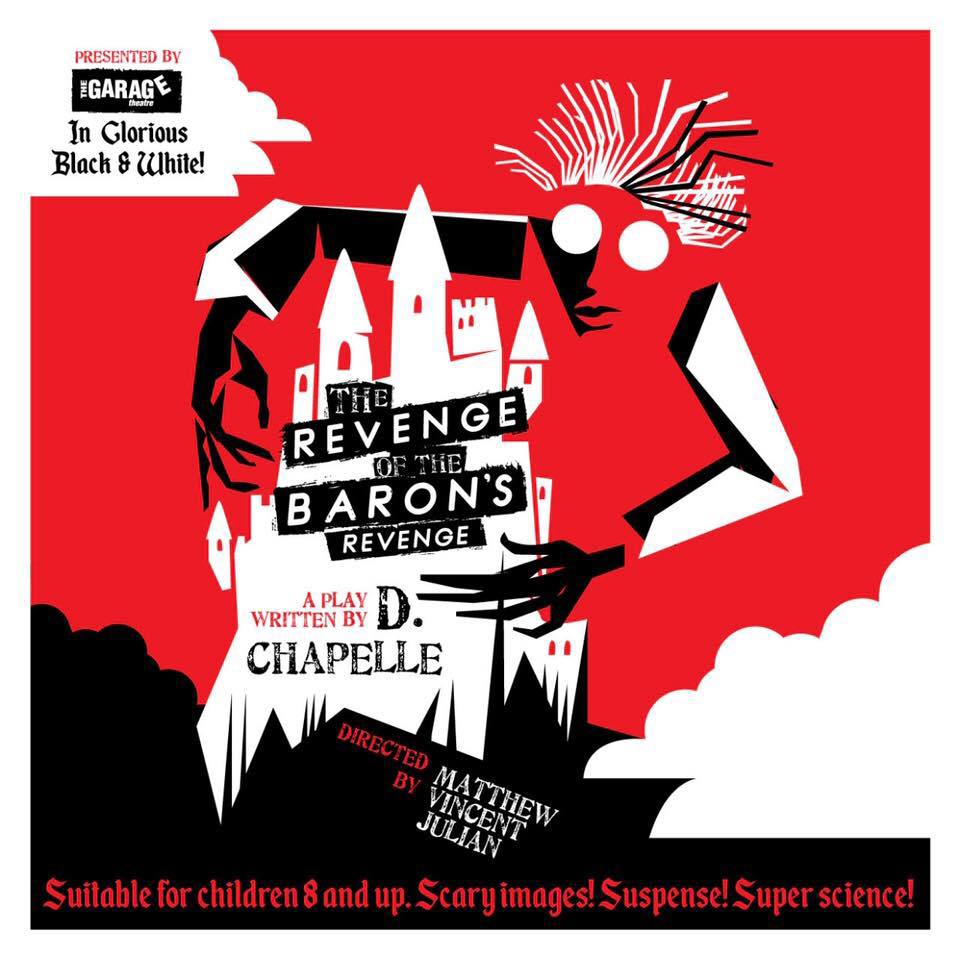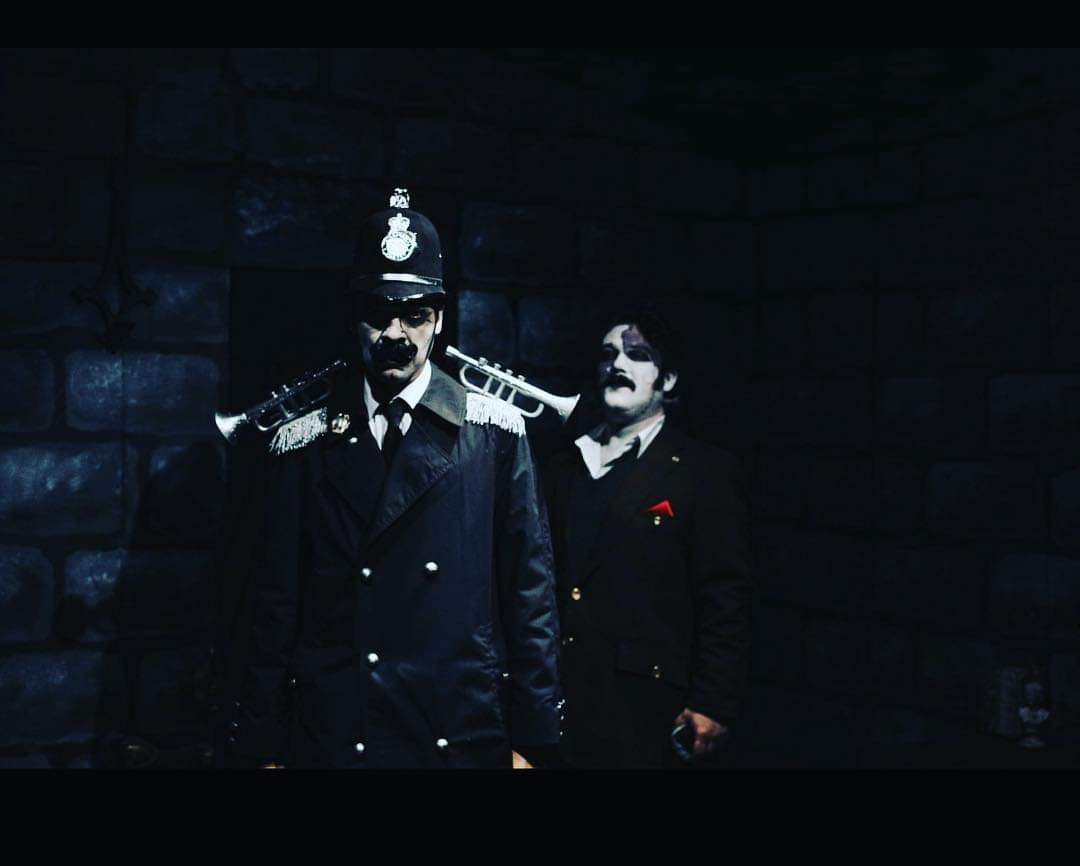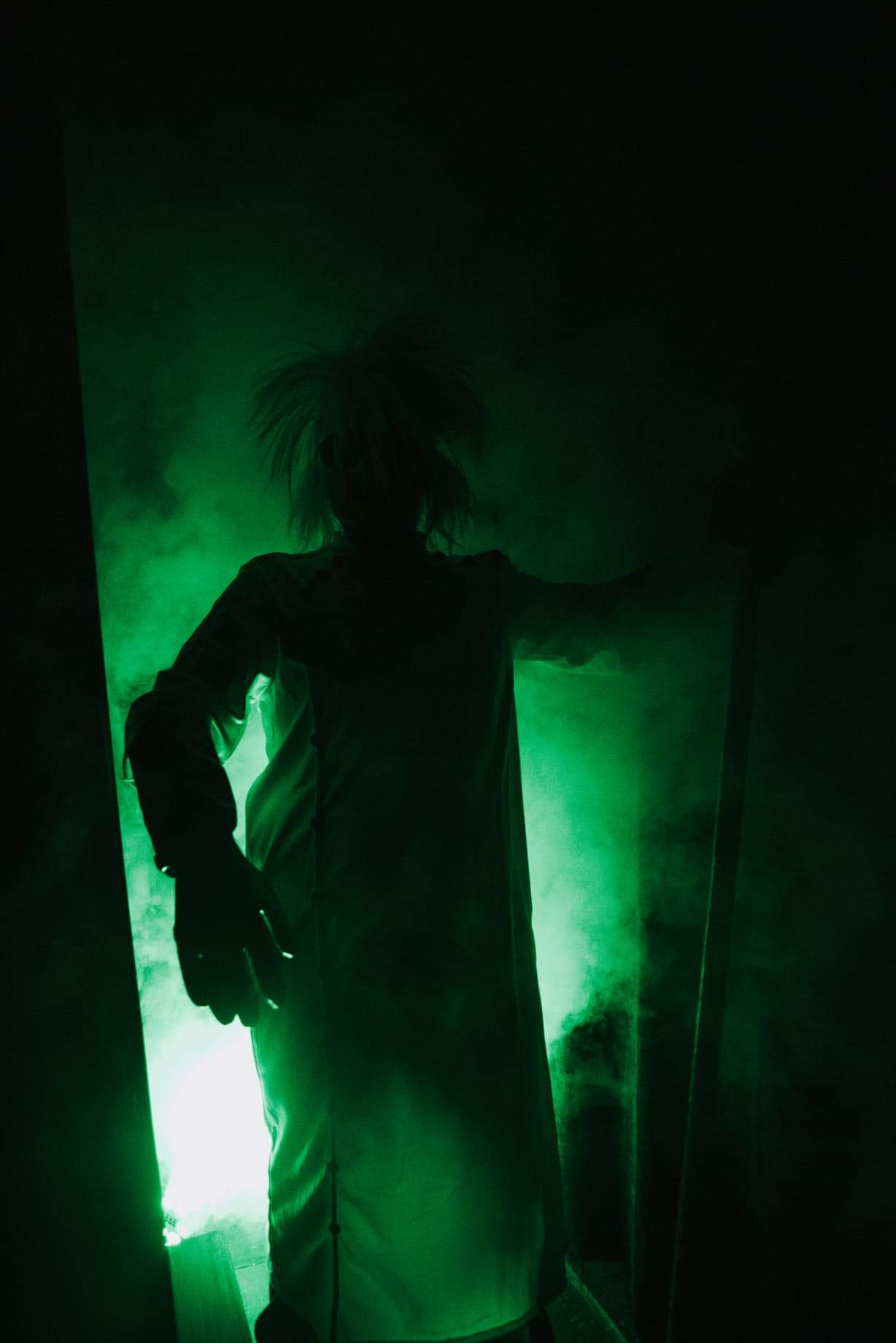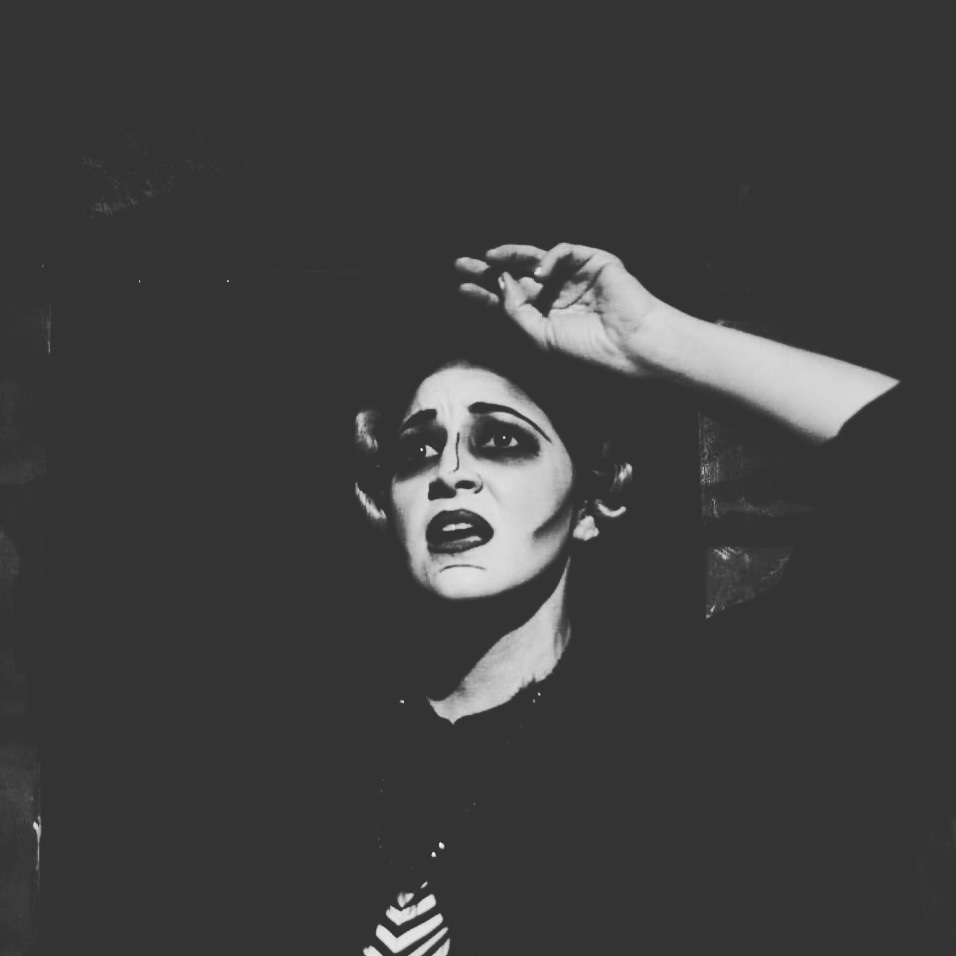Last Chance for Revenge: A Chat with The Garage Theatre’s Matthew Julian
9 minute readAn impromptu pole dance is not really how I expected Matthew Julian to begin our interview, but it was actually a fitting way to set the tone for our discussion on The Garage Theatre, a local company that is always quirky, entertaining, and often surprising.
Within their “intimate and fluid theater space,” the people behind The Garage pride themselves on producing exciting original works by lesser known authors and advancing their stated mission of bringing “a diverse body of work, take artistic risks, and uncover social and human truths.”
“We want to be thought of as people who bring work into the world. You can feel the passion in these original works,” said Julian, who is directing the theater’s current production “The Revenge of the Baron’s Revenge.” “They are usually more honest and have been some of our most popular, such as ‘Ravens and Writing Desks’ by Angela Lopez and Ryan McClary and ‘Lolpera’ by Ellen Warkentine, which are both works by local artists.”
The brainchild of Matt Anderson, Kristal Greenlea, Eric Hamme, Amy Louise Sebelius, Jamie Sweet, and Jessica Variz—six students that connected at Cal State Long Beach—The Garage Theatre began in 2001. Instead of heading off to New York or Los Angeles like so many of their fellow theater grads, the group decided to bring high-quality, accessible art to the city they had come to love. Julian joined the company in 2008. Almost two decades after they began, and after having produced 21 world premieres, this little black box theater that could is still going strong.
black box the·a·ter
n.
a simple indoor performance space with plain black walls and a level floor, typically designed to provide flexibility in the configuration of the stage and the audience seating.
“We aren’t doing a Tennessee Williams play that has been done 30 times; well unless it was a weird version or something. I mean he is great but there are risks when you don’t have name recognition, the work has to speak for itself. It has been really exciting to bring so many wonderful original pieces to life,” Julian said.
Next week, The Garage will begin holding auditions for a satirical adaptation of the action-packed ‘80s flick Road House starring Patrick Swayze. The screenplay for this cult classic was adapted into a parody for the stage by Cat Elrod, who will also direct it. [SPOILER ALERT] And yes, rest assured that it WILL include the classic throat-ripping out scene and all of the wild things you would expect after seeing the movie.
The theater will be transformed into the movie’s rough-and-tumble Double Deuce bar, which according to their website will be “complete with brawling cowboys, a real working bar, and a live roadhouse band!”
A fundraiser party for the play is planned at the end of the month in downtown Long Beach at the Hellada Gallery, featuring a silent auction and the Satrick Pwayze Band (yes, you read that right).
But before all that, “The Revenge of the Baron’s Revenge” has one more round of showings this weekend. I caught up with Julian to discuss his experience directing it and all the efforts that went into the production.
The following interview has been edited lightly for brevity and clarity.
What can the audience expect when they come to see “The Revenge of the Baron’s Revenge”?
There are six characters and the audience is the seventh. We encourage audience participation and give out things to throw at the villain to show disapproval because he is a bad guy that does bad things! The audience gets the opportunity to boo and throw things at them, but be forewarned, the actor is really good at blocking them—challenge!—and will throw things back. The play is a little spooky, not terrifying, but be advised if wanting to bring young kids, 8 and over is a good bet. Beetlejuice is a good test to see if they will be okay, if they like that then they will be fine. I do want to say that it is family friendly, but it is not necessarily a kid show, if that makes sense. It is also geared towards adults and with it adults are offered a chance to be a child, and everyone loves that … unless you are a real grouch, of course (laughs).
Tomisin Oluwole
Ode to Pink II, 2020
Acrylic and marker on paper
14 x 22 inches
Click here to check out our interview with Tomisin Oluwole, a a literary and visual artist based in Long Beach.

Instead of gunking up our site with ads, we use this space to display and promote the work of local artists.

The melodrama is touted as being in “glorious black and white.” Where did that idea come from and what did it take to make it happen?
I didn’t invent the idea but the idea came to me watching old episodes of the Twilight Zone, and I thought it would be cool to ask people to suspend disbelief for a moment, and to help them forget it was a live play and feel like it was an old film. Painting had to be done in such a way, the costumes and the set all had to be in the color scheme, and we had to use really stylized makeup. It was a lot of work but I had a very clear vision of how to make it work and it was a labor of love. When you are enjoying it, it isn’t work really. I love creative, project-based problem solving.
I had an amazing set of artists and designers who had the right attitude, like our lighting director, Josh Martinez Davis, who said, “I’m not sure how to do it but I am excited to try.” And I was like, “Yes!” That is the attitude we want on set. It was a fun challenge to grapple with. Color pops out against all the black and white, so all the characters have an accent of color, and when they are used, their effect is a lot more potent. I love how it turned out. I am eternally grateful for all the people who brought my vision out, including the two scenic designers from Cal State Long Beach, Sue Kim and Natalie Morales.

Cast member of “The Revenge of the Baron’s Revenge.” Photo By Fresh Frame Foto.
What can you tell our readers about the characters and the actors that are playing them?
At The Garage we always have a mix of people, some that have a lot of training, some people wanting to get back in the game after not doing it for awhile, people that have been part of the company for many years, people that are new to our theater, but always people with a lot of talent regardless. I am obsessed with everyone in the cast. Being able to direct them has been a great pleasure. They have grown so much and made me laugh more times than I can count.

Cast member of “The Revenge of the Baron’s Revenge.” Photo By Fresh Frame Foto
How does The Garage determine which plays you will do? What does the collaborative process look like? How do you determine that you are taking artistic risks and diversifying your body of work?
Every year, as a company we go on a retreat into the mountains to plan out the following year. We make decisions by committee. What often wins is passion. We all trust each other artistically and creatively; we all know we will make it happen. The great thing about our group is that we all have different skill sets, some are carpenters, organizers, or handle marketing and the business side, but we all work well together. Everybody swings hammers, paints. Everyone is on equal footing, all vibing together. Sometimes someone wanting to be a director brings their preferred piece to the table or sometimes a play someone is passionate about is brought to the table and someone else emerges as the ideal director.
We try to make enough money to finance the next project but money is not the goal. We want people to be elevated, presented with a point of view that they may not see. It is exciting to map it out but it is challenging because our income comes from ticket sales, so we have to make our choices accessible and compelling to people. So it changes over time, we’ve been a company for almost 20 years, and there have been culture shifts and it also can be hard to quantify, but we are constantly considering and figuring that out together.
Anything else you want our readers to know?
We are an open company, anyone can come to our auditions, we are not pay to play, which is another way we keep our work accessible, we are passionate about making sure there are no roadblocks of wealth in the way of art. We also take submissions for plays and original works, and our theater is available for staged readings and one off shows for very reasonable rental rates, email us. Keep an eye out for my own Blacklight Burlesque show coming up for one night in the near future at The Garage, which twists the expectations of burlesque with some very different ideas and elements such as body paint, and of course blacklight. The last one I hosted was a big success and a lot of fun.
The Garage Theatre is at 251 East Seventh St.
“The Revenge of the Baron’s Revenge” runs for the final time this upcoming Thursday, Friday, and Saturday. Doors open at 7:30 p.m. and the show is at 8 p.m. A special matinee showing on Saturday is at 2 p.m. Thursday is “Twofer Sutherland” night, buy two tickets for the price of one using code “twofer.” For more info and tickets go to www.thegaragetheatre.org.
Info on the “Road House” auditions at www.thegaragetheatre.org/auditions.
The “Road House” Fundraiser Party is from 7 to 10 p.m. March 30 at the Hellada Gallery, 117 Linden Ave, and will feature live music from the Satrick Pwayze Band and a silent auction. Buy tickets at www.thegaragetheater.org.



 erin@forthe.org
erin@forthe.org




